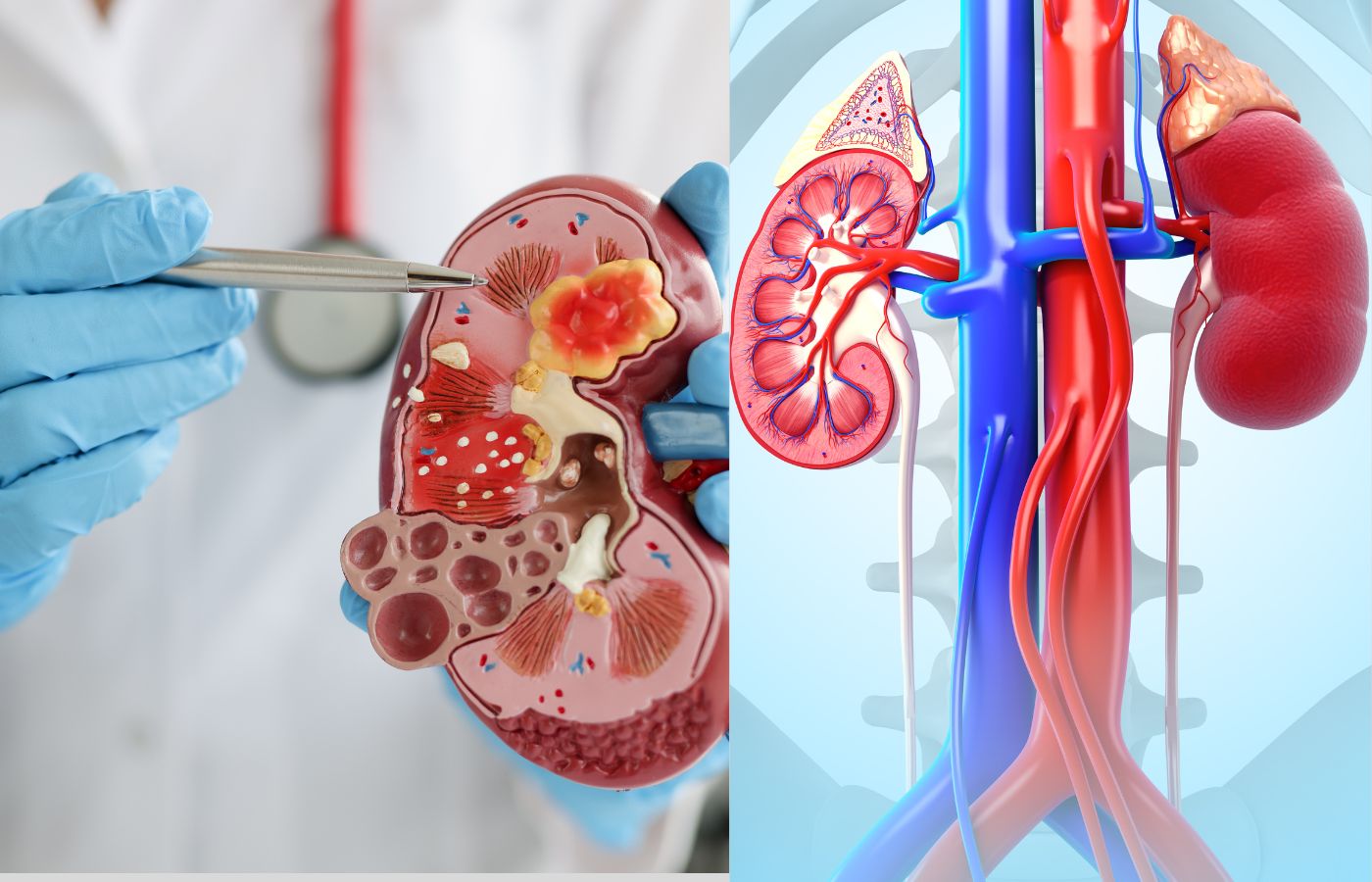
Kidney stones are one of the most common and painful urological conditions affecting people globally. These hard mineral deposits form inside the kidneys and can lead to severe pain, urinary issues, and even kidney damage if left untreated. While some stones pass out on their own, others may need medical or surgical intervention.
In this blog, we’ll discuss what kidney and kidney stones are, the main reasons for kidney stones, their symptoms, and how doctors perform a diagnostic test to detect and treat them. We’ll also touch upon the connection between kidney stones and kidney disease.
Kidney stones are small, hard deposits made of minerals and salts that form inside your kidneys. Medically known as renal calculi, they develop when certain substances like calcium, oxalate, and uric acid become highly concentrated in the urine and start crystallizing.
These crystals stick together to form stones that can vary in size—from as small as a grain of sand to as large as a golf ball. While some remain inside the kidney, others may move into the ureters, the tubes connecting the kidneys to the bladder, causing immense pain.
The kidneys play a vital role in filtering waste from the blood, balancing fluids, and producing urine. When they function correctly, minerals and waste products are excreted smoothly. However, when this balance is disturbed, substances accumulate and form kidney stones inside the kidney.
Over time, untreated or recurrent kidney stones can lead to kidney disease, especially if they obstruct the urinary tract or cause repeated infections.
There are several reasons for kidney stones, including lifestyle, diet, and medical conditions. Let’s break them down:
Not drinking enough water leads to highly concentrated urine, increasing the risk of stone formation.
Diets rich in salt or animal protein can trigger an increase in calcium or uric acid in the urine, leading to stones.
Excess body weight affects the body's chemical balance and can increase the likelihood of stone formation.
If someone in your family has had kidney stones, you may be genetically predisposed to develop them.
Conditions like inflammatory bowel disease or gastric bypass surgery may affect calcium and water absorption, leading to kidney and kidney stones.
Certain urinary tract infections, gout, or even medications may contribute to the development of stones.
Kidney stones often don’t show symptoms until they start moving or cause obstruction. The most classic sign is severe pain, but there are many other signs as well.
Pain usually starts in the lower back and radiates toward the groin.
This occurs when the stone moves closer to the bladder or urethra.
Stones can cause the inner lining of the urinary tract to bleed.
The feeling of needing to urinate frequently—even without producing much urine.
Pain can trigger a reaction in the digestive system.
This could indicate infection, often associated with stones.
While these are typical symptoms of kidney stones, they may also be signs of kidney disease, especially when accompanied by fatigue, swelling in the legs, or reduced urine output.
When kidney stones cause recurring blockages or infections, they can gradually lead to kidney disease. Some overlapping symptoms of kidney disease include:
Chronic kidney disease (CKD) may develop silently over time, so early detection of stones and treatment is crucial to prevent long-term damage.
When you visit a doctor with suspected kidney stones, they will perform a combination of physical examination, history-taking, and one or more diagnostic tests. These tests help determine the size, location, and type of stone.
Checks for high levels of minerals or crystals, infection, and blood in the urine.
Assesses calcium, uric acid, and kidney function indicators.
A quick, non-invasive scan that can detect stones and blockages.
Can detect certain types of stones but is less effective for small or non-calcium stones.
In some cases, your doctor might request a 24-hour urine collection to monitor mineral levels over a full day.
Kidney stones inside the kidney are painful but manageable with timely diagnosis and treatment. Knowing the reasons for kidney stones and being aware of the symptoms of kidney disease can help you take action early. If you notice signs like back pain, blood in urine, or urinary issues, consult a healthcare provider immediately for a proper diagnostic test.
Left untreated, stones can lead to serious kidney and kidney stones complications, including infections and kidney disease . But with the right lifestyle, hydration, and medical guidance, they can be prevented or treated effectively.